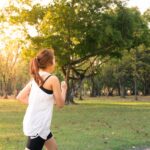The ubiquity of videoconferencing software in businesses and educational institutions, catalysed by the COVID-19 pandemic, has unveiled its potential for broader applications. A research team led by Osaka Metropolitan University (OMU) has delved into harnessing this transformative technology to enhance the well-being of elderly residents in rural areas.
Under the guidance of OMU’s Associate Professor Kazuki Uemura from the Graduate School of Rehabilitation Science, a 12-week health education initiative was orchestrated via the videoconferencing platform Zoom. The primary objective was to foster active participation among older adults, transforming health education into an interactive and engaging experience. Meanwhile, a control group received a comparable 12-week program via email, featuring passive learning through attached PDF files containing health instructions.
Evaluation of the participants, both pre-and post-intervention, followed by a 36-week follow-up, revealed promising outcomes. The videoconferencing cohort exhibited a propensity to adhere to health advice, coupled with noticeable enhancements in their physical activity levels, contrasting with the sedentary tendencies observed in the control group.
“This study unveils a novel paradigm for health education that transcends geographical barriers, prioritising sustainable behavioural modifications,” proposed Professor Uemura. “By expanding the scope of implementation and conducting further validation, our aspiration is to democratise such health initiatives, ensuring inclusivity and accessibility for all.”
More information: Kazuki Uemura et al, Active Learning Through Video Conferencing to Maintain Physical Activity Among Older Adults: A Pilot Randomized Controlled Trial, Journal of Aging and Physical Activity. DOI: 10.1123/japa.2023-0180
Journal information: Journal of Aging and Physical Activity Provided by Osaka Metropolitan University








